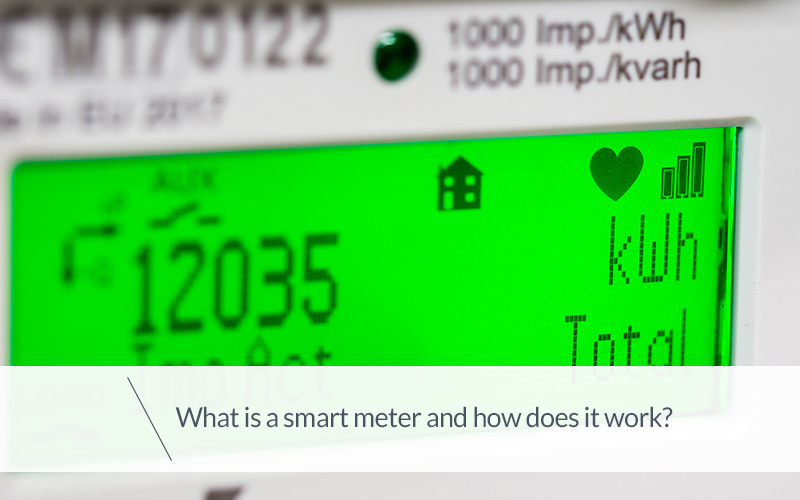
Most of us at home have at least three meters in use: for electricity, gas and water.
These devices, paramount for the supply of electricity, gas and water to our houses, have evolved over time from the old mechanical meters to more modern versions, then to digital versions, finally becoming smart devices in the last years.
Thus, the utilities businesses managing and maintaining these meters must periodically replace old models with new and better-performing ones, with evident advantages both for the business which supply the utilities and for the end consumers.
Let’s take a look together at the newest smart meters and understand how they work.
What are smart meters?
Smart meters have been a topic of conversation for roughly 30 years, right from when static (or mechanical) meters containing at least one microprocessor were introduced to the market, but mainstream usage of these devices is much more recent, and their roll-out is currently on-going.
When we use the term “smart meter”, we are referring to a device that must possess certain features, as follows:
- automatic measurement data processing, transfer, management and usage
- automatic meter management
- bidirectional communication with meters
- the supply of timely and significant consumption information to the key players and to their systems, including the utility consumer
- support of services which improve the energy efficiency of energy consumption and the energy system in general (production, transmission, distribution and above all final usage)
We can consider it therefore to be a multi-application meter (as we will see later) which is able to manage, process and communicate usage data in a precise, reliable and fast manner, allowing remote access, therefore eliminating the need to send an operator to the actual premises.
More in detail, smart meters allow utility companies to:
- check if the device has been correctly installed and is working adequately
- communicate data to the meter via standard open and safe procedures
- conduct remote software updates to the meter via the communication network
- manage multi-utility accounting records (electricity, gas, heating and water)
- manage automatic data consumption readings for invoicing or payment, and for energy end-use analysis
- supply consumption data in realtime to various players (distributors, resellers, end-users)
- ensure more efficient tariff management
- allow better management of, control of and reaction to the overall network load
Advantages for the supplier and the end user
Smart meters, by providing consumption data that is accurate and fairly up-to-date at the place of measurement, largely eliminate the need for data estimates on usage consumptions, and therefore the subsequent correction of payments and invoicing.
Stated briefly, it is no longer necessary to estimate consumption as a basis for invoice issuing, because real consumption is recorded accurately and is accessible at any given time.
This in turn gives an advantage to the supplier, who can optimise processes and reduce a series of additional costs, and for the end user who will only actually pay for what they have used.
In addition, one of the main features of smart meters is the ability to request data measurements from an individual meter at any time, facilitating a possible change of suppliers.
It is highly likely that in the future it will be possible to automate procedures for switching between suppliers.
Equally important is the possibility to prevent overloading of the various components and avoid variations in power quality, via the installation of smart meters. This is due to a decided improvement in the knowledge of local power fluctuations approaching the low-tension limits of distribution networks, which were generally inaccurate.
What are the major applications for smart meters?
As we mentioned above, smart meters can be used for a number of applications.
Among the most important are undoubtedly the following:
- monitoring and improvement of services in regard to energy efficiency
- end-use energy management
- tariff application
- energy savings
- satisfying demand from the electric market and for network operative support
- smart homes, home automation, remote control of electrical appliances by clients
- connecting, disconnecting to remotely limit overload
- load analysis, modelling and forecasts
- payments and invoices
- Virtual Power Plants, integrated renewable energies and cogeneration
- improving competition and efficiency in the energy markets
- intercepting frauds
- supplying information to authorities and researchers
- meters management
- national forecasts for electric distribution networks
- energy quality and reliability monitoring
- advance payments
- additional services acting as a supervised reserve regards frequency, tension and reactivity
- power management
- breakdown analyses and preventive maintenance
- safety, protection, telemedicine, social alarm services
A more widespread use of smart meters would thus allow a sustainable improvement in supply management and usage of electricity, gas and water, with consequent optimisation of processes.
An ever greener and smarter world, with the arrival of home automation, the increase in electrification of services, greater attention paid to energy savings, requires increasingly efficient technologies and infrastructures, starting out with smart meters.



